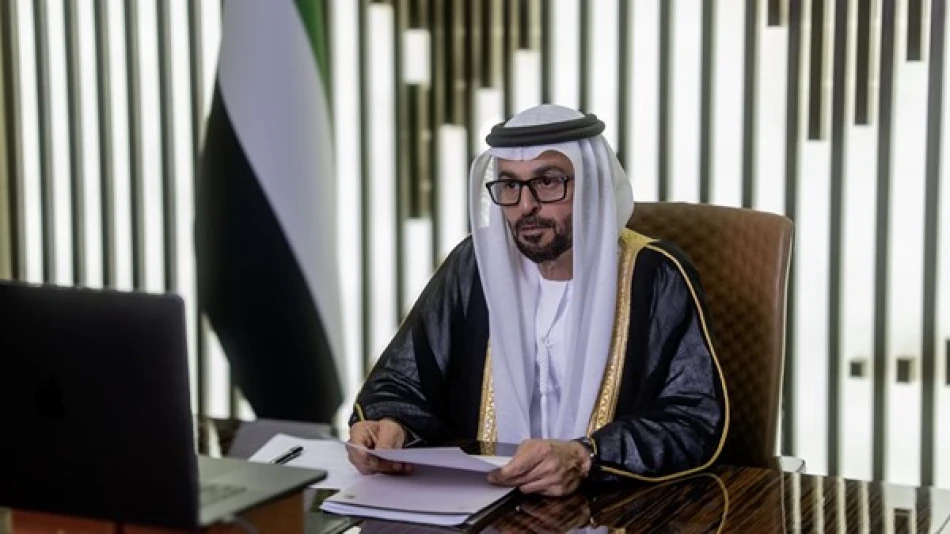
UAE Delegation Attends BRICS Prosecutors General Meeting, Strengthening Global Legal Cooperation
BRICS Prosecutors Unite on AI Justice: UAE Joins Global Push for Tech-Enhanced Legal Systems
The UAE's Public Prosecution has joined a landmark BRICS initiative exploring how artificial intelligence can transform criminal justice systems, signaling the Gulf state's commitment to legal innovation and deeper integration with emerging economic powers. The seventh meeting of BRICS prosecutors, held virtually on September 16 under Brazil's leadership, focused on "Artificial Intelligence and Justice" — a topic that could reshape how legal systems operate globally.
Strategic Alignment with BRICS Legal Framework
The UAE's participation in this high-level meeting reflects a broader strategic pivot toward diversifying international partnerships beyond traditional Western allies. BRICS nations — Brazil, Russia, India, China, and South Africa — represent over 40% of the global population and a growing share of world GDP, making their legal cooperation frameworks increasingly influential.
During the virtual session, UAE prosecutors emphasized their commitment to modernizing legal processes through AI integration while maintaining core principles of justice and human rights protection. This approach aligns with the UAE's Vision 2071, which aims to make the country the world's best nation by its centennial.
AI Revolution in Criminal Justice
Current Applications and Future Potential
The integration of artificial intelligence in prosecution work represents a fundamental shift in how legal systems process cases, analyze evidence, and deliver justice. AI applications in criminal justice already include:
Predictive analytics for case outcomes and resource allocation, automated document review for complex financial crimes, and pattern recognition in fraud detection and cybercrime investigations. The UAE's participation suggests the nation is positioning itself at the forefront of these technological advances.
Market Implications for Legal Tech
This collaborative approach among BRICS prosecutors creates significant opportunities for legal technology companies. The standardization of AI tools across major emerging economies could accelerate adoption rates and drive innovation in areas like cross-border crime investigation and evidence sharing.
For investors, the legal tech sector within BRICS nations presents compelling growth prospects, particularly as these countries collectively handle millions of criminal cases annually and seek efficiency gains through automation.
Regional Leadership and Global Positioning
The UAE's involvement mirrors similar tech-forward legal initiatives in Singapore and Estonia, where digital transformation has revolutionized court systems and prosecution workflows. However, the BRICS framework offers something unique: scale and emerging market focus that could influence legal standards across developing nations.
The UAE delegation, led by Assistant Attorney General Sultan Ibrahim Al-Juwaied and including senior prosecutors, demonstrates the country's serious commitment to this multilateral approach. This high-level representation suggests the UAE views BRICS legal cooperation as strategically important for its long-term judicial modernization goals.
Challenges and Opportunities Ahead
While AI promises greater efficiency and accuracy in legal proceedings, the technology raises complex questions about algorithmic bias, data privacy, and due process rights. The BRICS prosecutors' focus on these issues indicates a mature approach to AI adoption that prioritizes both innovation and constitutional protections.
For the UAE specifically, this collaboration offers access to diverse legal datasets and AI models tested across different legal systems. Such knowledge sharing could accelerate the development of Arabic-language legal AI tools and enhance the country's position as a regional hub for legal services and dispute resolution.
The meeting's outcomes will likely influence how emerging economies approach the intersection of technology and justice, potentially creating new standards for AI governance in legal systems worldwide.
Most Viewed News

 Layla Al Mansoori
Layla Al Mansoori






